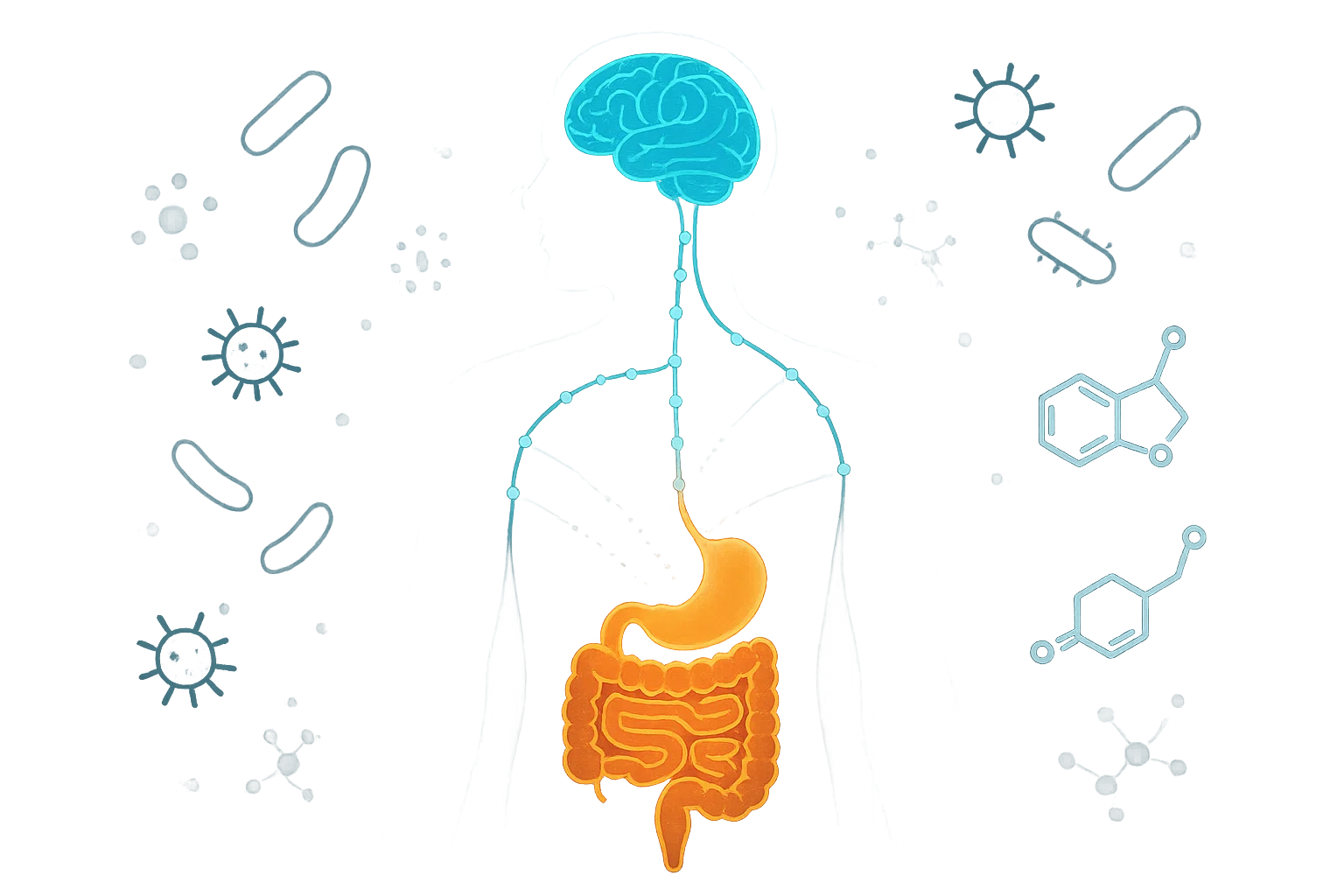The revelation of the gut-brain axis which is the interconnection network of the nervous system and the digestive system has changed our view on human body significantly in the last decade alone. A recent study in Hormones and Behavior (2025) goes even further to show that the development of a brain may be determined by the bacteria of the gut early before one is born.
The Hidden Role of the Microbiota
In the human body, trillion microorganisms called the microbiota live. These are microorganisms crucial to digestion, immunity and health in general. However, recent studies are discovering yet another unexpected role which is shaping brain structure and activity.
In the study, conducted by scientists at Georgia State University, researchers looked at what happens when gut microbes are absent and how this impacts the development of an important brain center in a mouse the hypothalamic paraventricular nucleus (PVN). PVN controls important processes, such as stress, social interaction, and hormonal balance on neurohormones, such as oxytocin, vasopressin and corticotropin-releasing hormone.
The Experiment The Normal Mice Versus the Germ Free Mice
Mice that were raised in a completely sterile environment and mice that had normal exposure to microbes were compared by researchers. Using a cross fostering approach they also transferred germ free newborns to normal microbiota mothers after birth to determine whether postnatal inoculation could correct any deficiency.
The findings were dramatic
Permanent Alterations In The Brain: GF mice differed significantly reduced number of neurons in PVN than in CC mice.
Prenatal Effect: Putting GF pups in normal mothers during birth failed to rescue the PVN cell numbers implying the critical role of microbes in utero.
Long Term Effects: Neuron decrease survived to adulthood, which may be a cause of behavioral divergence as previously noted of germ free mice, such as stress responses behavior and social interactions.
What are the Effects ofhe MD on the Fetal Brain of the Maternal Microbiota?
The paper indicates a number of possible mechanisms:
Maternal Metabolites that Crossing the Placenta: The small chain fatty acids of microbial origin can enter the brain of the fetus and stimulate its proliferation.
Hormonal and Immune Modulation: A favorable maternal microbiome helps when it comes to hormone production and immune balance, which is so essential in the brain development of the fetus.
Placental Development: Previous studies indicate that the microbiome promotes blood vascular development at the level of the placenta to bring more nutrients to the fetus.
This implies that the effect of the microbiome on developing brains can be as essential as heredity and diet.
Consequences to the Human Health
Although limits the applicability to human beings, the study in mice opens up new horizons into the neurodevelopment of human beings. Upsets in maternal microbiota, as a result of antibiotics, unhealthy diet, or stress, may be a potential cause of fetal brain wiring malfunction, which is predisposing to mental diseases in the future.
Additionally, this result contributes to an increasing body of knowledge which shows the significance of the prenatal nutrition and gut health. In the future, targeted probiotics or dietary measures during pregnancy may help to achieve optimal brain development of the fetus.
Looking Ahead
The research is an essential breakthrough in decoding how microscopic organisms that inhabit our bodies can cause global effects on our brain structure and behavior. According to the lead author Dr. Alexandra Castillo Ruiz: Our results show that the microbiota of the gut is not merely an onlooker but an active participant in brain development in the prenatal period.
Our knowledge of the microbiota in neurodevelopment is still in its infancy but in the future, this research may radically change our understanding of prenatal care and the prevention of psychiatric disorders.
Reference
Milligan, Y.C., Peters, N.V., West, G., et al. (2025). The microbiota shapes the development of the mouse hypothalamic paraventricular nucleus. Hormones and Behavior, 172, 105742. https://doi.org/10.1016/j.yhbeh.2025.105742

